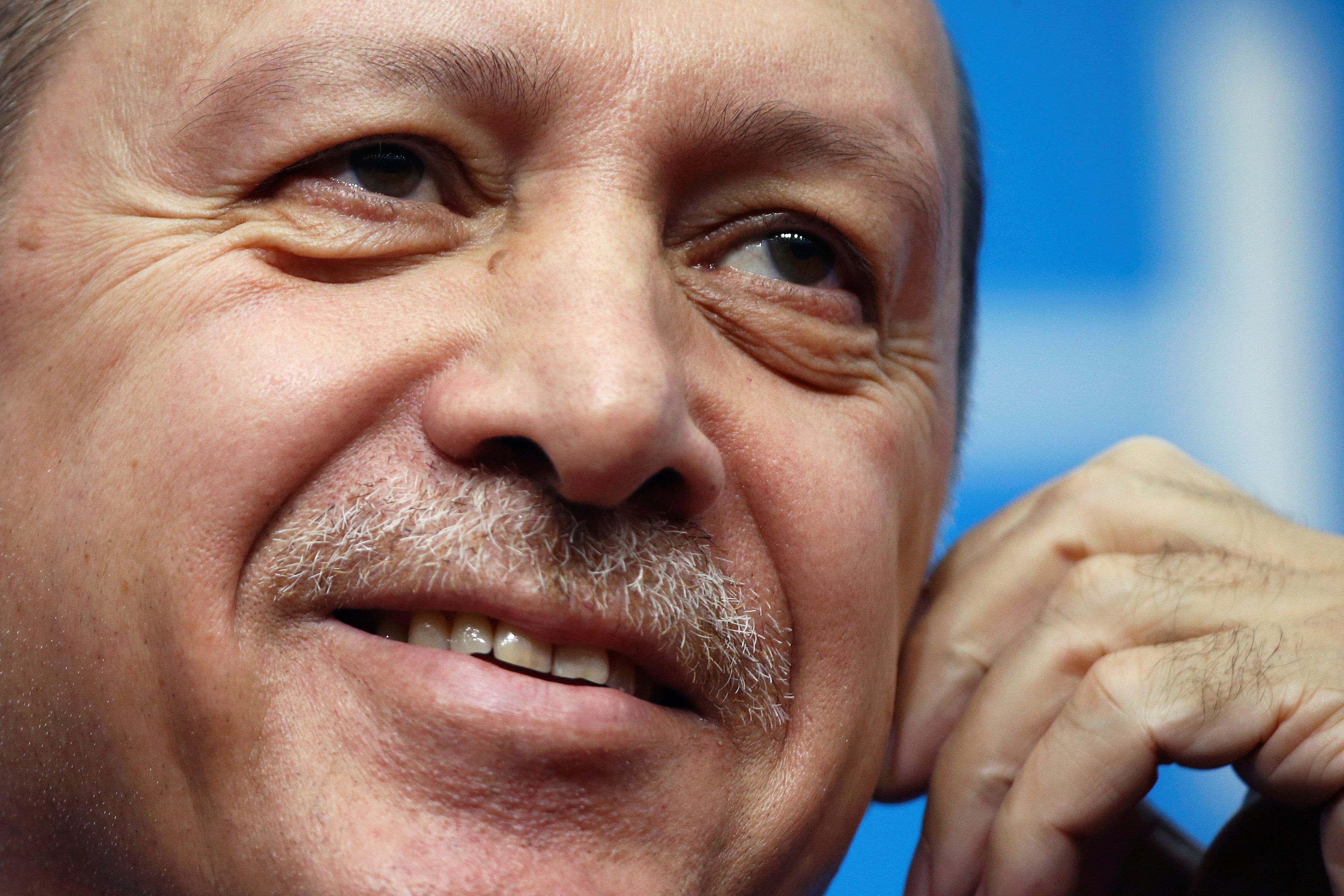October 17, 2019
"Don't be a tough guy," Trump said. "Don't be a fool." Make a deal. Those were his words of wisdom for Turkish President Recep Tayyip Erdogan in an extremely peculiar letter of warning about the consequences of continuing Turkey's invasion of Syria. Well, today the American government's top two Mikes (VP Pence and Secretary of State Pompeo) flew to Ankara to make a deal. And what a deal it was...for Erdogan.
Turkey has agreed to halt military operations for 120 hours in northern Syria. In exchange for that, the US has endorsed Ankara's demands for a Turkish-administered "safe zone" extending 20 miles into Syria and has agreed to oversee the withdrawal from that area of Kurdish militants who are linked to the Turkey-based Kurdistan Workers' Party (PKK), which has waged a decades-long armed conflict against Ankara. If all goes well over those 120 hours – which the US calls a ceasefire but Turkey does not –Washington will also remove the sanctions that it imposed on Ankara after Turkey invaded Syria last week. Trump had initially opened the way for that invasion by pulling back US forces working locally with Kurdish militants to fight ISIS.
First and foremost, this agreement is good for the people living in northern Syria, who in recent days have already suffered hideous violence as Turkish troops and their local Arab proxies advanced. At least 50 civilians have been killed inside Syria and 18 over the border in southern Turkey since the Turkish offensive began.
But it's also an extraordinary win for Erdogan, who has long sought a "safe zone" of this kind for two reasons. First, as a place he can send some of the 3.6 million increasingly unwelcome Syrian refugees currently residing in Turkey. And second, as a buffer between powerful Kurdish militants in Syria and their Kurdish separatist groups inside Turkey.
Looking ahead, here are a few questions that remain unanswered.
What happens to the Kurds? Simply put, they lose this land. But more broadly, the US has committed to removing members of the Kurdish militant group YPG from the area. Where will they go? And under what terms? How will the US distinguish between Kurdish militants in the area and members of the Syrian Defense Forces (SDF) – a group formed in 2015 to help the US in its fight against ISIS. Does the SDF's recent decision to switch allegiance from the US to the regime of Bashar al-Assad and Russia still hold?
What happens to ISIS? One of the fears in recent days was that heightened conflict in the region would enable ISIS fighters held by the Kurds to escape. President Trump has downplayed that risk, telling the press that under the agreement the Kurds will continue to track and fight ISIS "under US supervision." It's not clear what "US supervision" means if the US no longer has a presence in that swath of Syria.
What about Russia? Russian military contractors had already begun to move into areas abandoned by retreating US forces. What's more, Moscow's idea of a Turkish "safe zone" is less than a third as deep as what the two Mikes have agreed to in Ankara.
What concessions did the US get from Turkey? Pence repeatedly evaded this $10 million question at a press conference after the meeting with Turkey, saying "you'll see from the agreement."
For now, we'll have to wait and see. But at first gloss, Erdogan has achieved virtually all of his goals in northern Syria at the low low price of a week's unpleasantness with Trump.
He got to be a tough guy, and, in the end, he was certainly no fool.
More For You
Mastercard Economic Institute's Outlook 2026 explores the forces redefining global business. Tariffs, technology, and transformation define an adaptive economy for the year ahead. Expect moderate growth amid easing inflation, evolving fiscal policies, and rapid AI adoption, driving productivity. Digital transformation for SMEs and shifts in trade and consumer behavior will shape strategies worldwide. Stay ahead with insights to help navigate complexity and seize emerging opportunities. Learn more here.
Most Popular
- YouTube
Despite a ceasefire in Gaza, Israel is still not letting foreign journalists in to independently verify what’s happening on the ground, CNN’s Clarissa Ward tells Ian Bremmer on GZERO World.
- YouTube
On Ask Ian, Ian Bremmer breaks down the steady escalation of US pressure on Venezuela and why direct military action is now a real possibility.
US President Donald Trump arrives to announce reciprocal tariffs against US trading partners in the Rose Garden of the White House in Washington, DC, USA, on April 2, 2025.
POOL via CNP/INSTARimages.com
From civil conflicts to trade wars to the rise of new technologies, GZERO runs through the stories that have shaped this year in geopolitics.
© 2025 GZERO Media. All Rights Reserved | A Eurasia Group media company.
